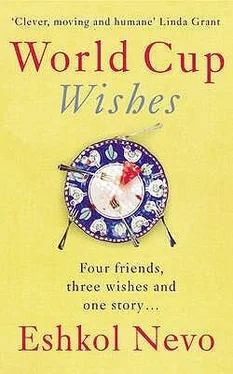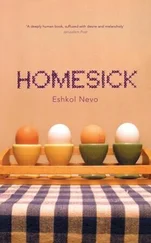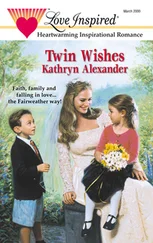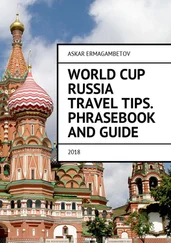The countdown’s over
And nothing took place
After zero comes the silence
After zero comes the silence
Of empty space
*
The Chameleons’ tired melodies rocked me slowly, defeating me into a too-early, sweaty noontime nap that I woke from in a panic, my heart pounding rapidly as I tried to grab onto the tail of the nightmare that had attacked me while I slept. Once it was a car I was driving that suddenly had no brake pedal, only the accelerator, and once it was Ilana, who wanted, demanded, that I kiss her cracked, dead lips. Once it was the handcuffed boy from Nablus limping towards me, a club in his hand, and once it was Shahar Cohen who was shooting ping-pong balls at me through a gun, and when I couldn’t catch them, he said contemptuously, ‘How do you expect to save money like that, man?’
After years, the recurrent nightmare of my childhood returned: I’m a little boy sitting on the beach in Haifa with my mother and father, building sandcastles, when suddenly a huge wave the height of a four-story building comes rushing towards us. We get up and start running away from it, but the wave pursues us up Mount Carmel, engulfing buildings and cars and other people on the way, but not us, because we manage to race all the way to the Muchraka which, for some reason, was called Masada, and we stood there and watched the huge wave finally retreat into the sea like all the other waves.
The water-pursuing-me feeling was so palpable that every time I woke up from that dream, I needed a few seconds of open eyes to be convinced that it wasn’t really happening. Every morning I would promise myself not to fall asleep in the afternoon so that I wouldn’t have one of those nightmares, but every day I’d give in to the temptation to lie down on the sofa ‘just for a minute’ to listen to ‘only three songs’ from the Chameleons’ CD.
A light breeze would come through the window in the afternoon, and that would get me off the sofa and energise me a bit. But that renewed energy had something even more frightening in it: the whole time I was comatose, I wasn’t a danger to myself, but the minute I began to move around the room, there was always the chance that my legs would take me to the window. To the window ledge.
I had gone through a dark period like that when I came back from the long trip with Churchill. I couldn’t fall asleep at night then either and used to snatch a few hours of nightmare-ridden afternoon sleep. Then too, things seemed to be in the wrong place and I thought that the parts of my body weren’t working properly. But that had been a shorter period — about a week — and at no time did it go as far as the window ledge.
I was young then. After the trip. And still had hope that things would change. That I would change.
Eight years had passed, and there I was, an old man of thirty-one. I’d completed the plaster years Ilana had spoken about and the plaster hadn’t set and I hadn’t found a cause, and even my friends, who had once been the reason and the result and the ground and gravity — even they were already moving away from me, each towards his own star. I assumed they still loved me, cared about me, but their feelings seemed faint, like an alarm clock ringing in another house. And my parents — I’d spent ten years trying to get away from them, and I’d done it so well that now they were too far away to help me, and even if I tried, what could possibly happen? My father would tell me, again, how good I used to be in maths, and wonder, again, why, for heaven’s sake, I hadn’t continued in that direction, and my mother — she’s a wonderful person, but ever since she left the printing house and signed up for an Arabic course because ‘that is the space we live in’, and for a singles group because ‘why did she have to miss out on meeting interesting people just because she was married’, and for a course for tour guides because ‘someone has to show the world the beauties of Haifa’ — ever since this late blooming had begun, her optimism, which had been quiet and pleasant, had turned into something quite stormy, and a few days ago, she left me a message that she’s at a Ministry of Tourism course at Kibbutz Shefayim, and if I want, I can pop by in the evening, but I didn’t call her back because I could picture us sitting together in the kibbutz dining hall that had been transformed into a restaurant, she with that happy moon face of hers and me with my limp paleness, and I try to explain to her what I’m going through, and she nods politely, supposedly listening, but at the first opportunity, she changes the subject and tells me that it’s not at all certain that Harry is Charles’s son, and that the hottest conspiracy theory in London now is that Diana wasn’t killed in the accident, but was murdered by assassins from British intelligence.
*
And anyway, if I were living in the time of the Second Aliyah, or during the War of Attrition, when Late Summer Blues takes place, then I could join something that was nourished by a great, important cause, or alternatively, I could be like Aara’le from the movie and write slogans against the great cause. But now? There was no one and nothing to live for (and that’s a lie too. I don’t have Aara’le’s daring, and even if I lived in an important period of time, I would probably find reasons to question its values, to observe the action from the sidelines and then complain that I had no purpose in life).
*
One of the times that I was a step away from giving up — I picked up a pen and wrote a list of the small things, not the big ones, that are still worth living for.
It took a long time, and while I was doing it, doubt was gnawing away at me — why bother with a list? Words and more words –
But in the end, the pen started moving:
Apricots — during the very short season (about two days) when they’re not too hard and not too soft .
The CD of collected Chameleon songs that would come out after they split (specifically, the moment I open the wrapper at home, and take out the booklet with the lyrics and read them) .
A visit to Sydney, Australia (I had never been, but people who had said it was fantastic) .
The first days of summer at university (a female hand tucking a short skirt behind her knees) .
To live outside the city and see if it helps my asthma .
The fact that I still haven’t had the chance to do it with two sisters at the same time (or to do it in a respectable public place like, let’s say, the Israel Museum) .
The fact that perhaps once, when we’re very old, there will be peace .
Ah, yes. Also the fact that the next World Cup is really close .
A small smile unwound in me when I added the World Cup to the list. Somehow, of all the things I’d written, that was the one to slip between my dry ribs and strum on the string. Suddenly I thought it really would be a shame to leave before the World Cup, to miss the great little dances the African players do after scoring a goal, not to see the bloody Germans go home in defeat after the semi-final, and not to hear the English fans chanting for their team, and the batucada in the Brazilian stands, and the analysts’ stupid predictions, and the reports on the suspension of the civil war in Togo, or Ethiopia, or anywhere else but the Middle East, for the month of the matches. And the yellow cards, the red cards and the close-ups of the players’ faces when they get a red one, and the black-and-white archive clips of England’s crossbar goal in the ’66 World Cup, and Spiegler’s goal in ’70, and the hypnotic white ball moving from foot to foot to foot, and the fans doing the Mexican wave in the stadium stands, and our improvised wave in Amichai’s living room, and the slight nausea you feel after you’ve watched three terrible football matches in one day, and the elation pulsing inside you after you’ve seen a truly great match, the kind that will go down in your own private history, and the joy of knowing that for a month, you can devote most of your time to something that has no other purpose than to give you pleasure, and that wonderful internal contradiction in football between the enormous effort of the coaches to prepare the game and the natural randomness that suddenly bursts from the players’ feet despite themselves, happily sabotaging all the predictions, and that moment when the hypnotic white ball lands in the bottom of the net and the scoring player breaks into a run, shaking off everyone who dashes over to hug him, and he has no idea where he’s racing off to, what his final destination is, but he is simply so damn happy that he has to do something with his body, has to take off his shirt, skip past the billboards, climb onto the fence, hug the coach, get down on his knees in thanks –
Читать дальше












